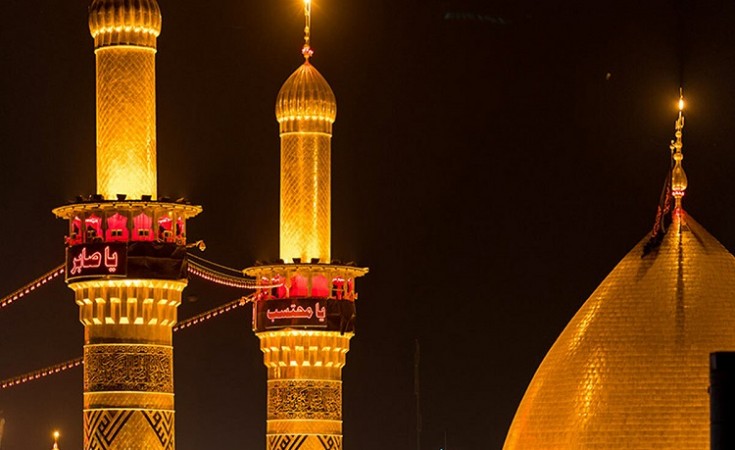
Ashoora, also known as Muharram, is one of the most significant religious observances for Muslims worldwide. It marks the tenth day of Muharram, the first month of the Islamic lunar calendar. In Jammu and Srinagar, two prominent cities in the Indian Union territory of Jammu and Kashmir, the Ashoora festival holds particular significance. On the 28th of July each year, Muslims in these regions come together to commemorate the martyrdom of Imam Hussein, the grandson of Prophet Muhammad.
Historical Background: Ashoora derives its importance from the tragic events that unfolded in the year 680 AD (61 AH) during the Battle of Karbala, which took place in present-day Iraq. Imam Hussein, the beloved grandson of the Prophet Muhammad, along with his family and a small group of loyal companions, faced overwhelming odds against the forces of the Umayyad caliph, Yazid I. Despite being outnumbered, Imam Hussein refused to pledge allegiance to Yazid's tyrannical rule, choosing to stand for justice, righteousness, and the true teachings of Islam.
The Martyrdom of Imam Hussein: The battle reached its climax on the tenth day of Muharram, when Imam Hussein and his companions faced immense thirst and hunger due to the siege imposed on them. On this tragic day, the forces of Yazid I mercilessly killed Imam Hussein and his male family members and companions, leaving a lasting impact on the Muslim community. The event became a powerful symbol of resistance against oppression and tyranny.
Commemoration in Jammu and Srinagar: In Jammu and Srinagar, the Ashoora festival is observed with deep reverence and solemnity by both Shia and Sunni Muslim communities. The commemorations differ slightly in their rituals and practices, but the essence remains the same - to remember and honor the sacrifice of Imam Hussein.
In Srinagar, the festival begins with a pre-dawn prayer at local mosques, where devotees recite elegies and offer supplications. Throughout the day, processions are held on the streets, with participants dressed in black, symbolizing grief and mourning. These processions often feature large replicas of the mausoleum of Imam Hussein, adorned with black banners and accompanied by mournful chants.
In Jammu, the Ashoora festival is equally significant, with mosques serving as central gathering points for prayers and remembrance. The city is draped in black flags and banners, creating a somber atmosphere. Devotees, regardless of age or gender, participate in the processions, often carrying taziyas (symbolic replicas of Imam Hussein's tomb).
Interfaith Harmony: Ashoora also demonstrates the remarkable communal harmony between Muslims and people of other faiths in Jammu and Srinagar. Non-Muslims often participate in the processions, expressing solidarity and support for their fellow citizens. This inclusive approach fosters a sense of unity and strengthens the bond between different communities.
Importance of Ashoora: Beyond its religious significance, Ashoora carries a universal message of justice, compassion, and self-sacrifice. It serves as a reminder to uphold principles that are larger than oneself and to resist oppression, even in the face of adversity. The legacy of Imam Hussein continues to inspire millions around the world to stand for truth and righteousness.
The Ashoora festival in Jammu and Srinagar is a powerful testament to the enduring spirit of unity and solidarity among Muslims in the region. It serves as a bridge that connects communities, transcending religious boundaries and promoting harmony. The commemoration of Imam Hussein's sacrifice instills in people a renewed commitment to principles of justice and compassion, contributing to the promotion of peace and understanding in society. As the years pass, the significance of Ashoora remains steadfast, reminding us all of the indomitable power of faith and the enduring legacy of those who stand up for what is right.